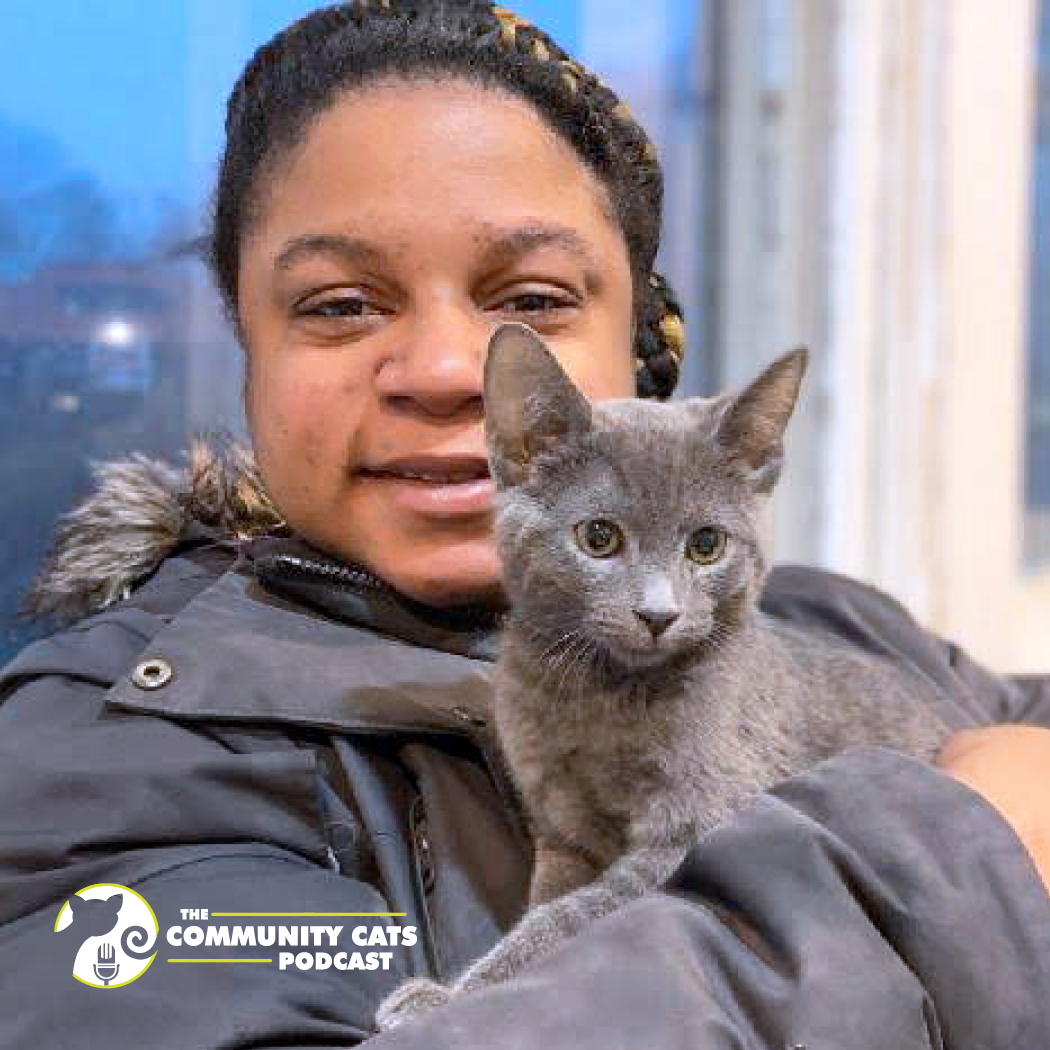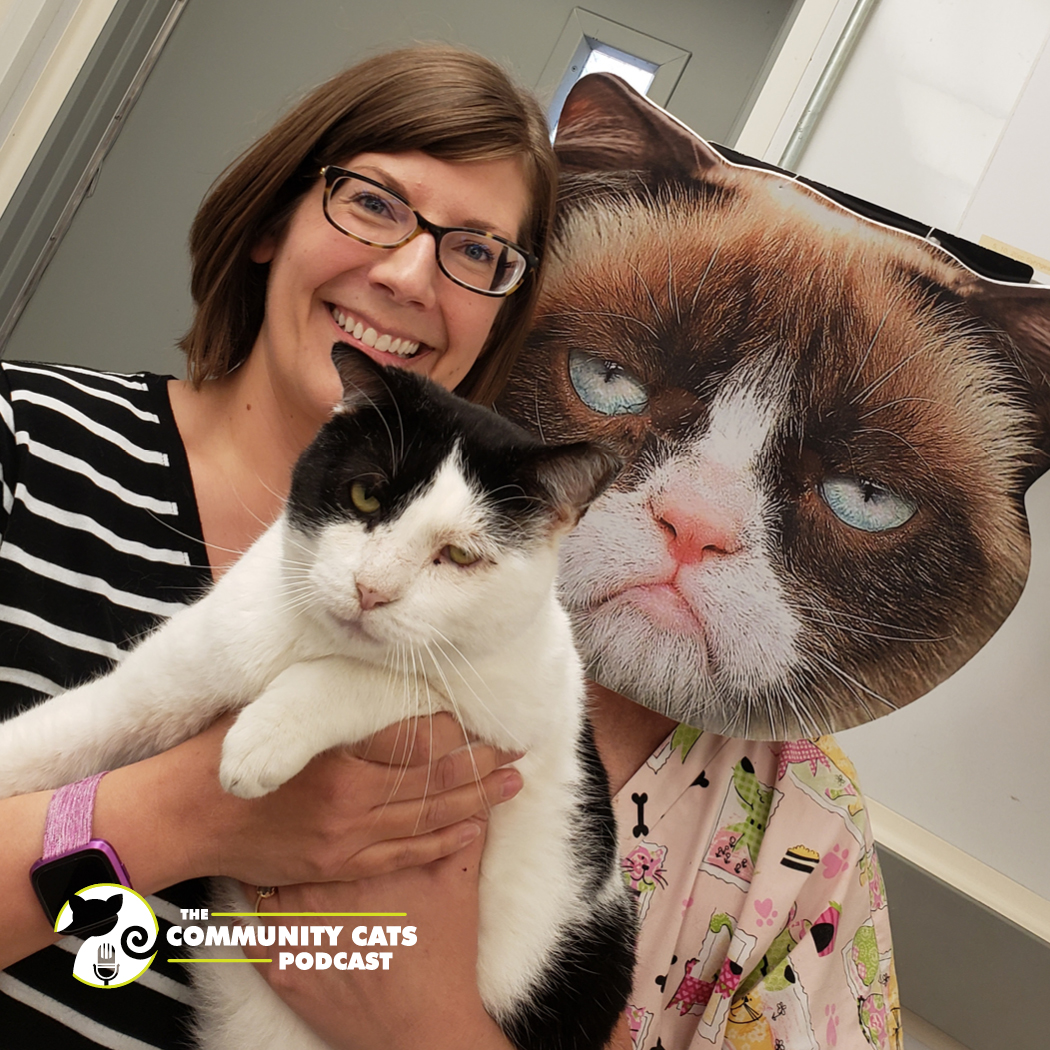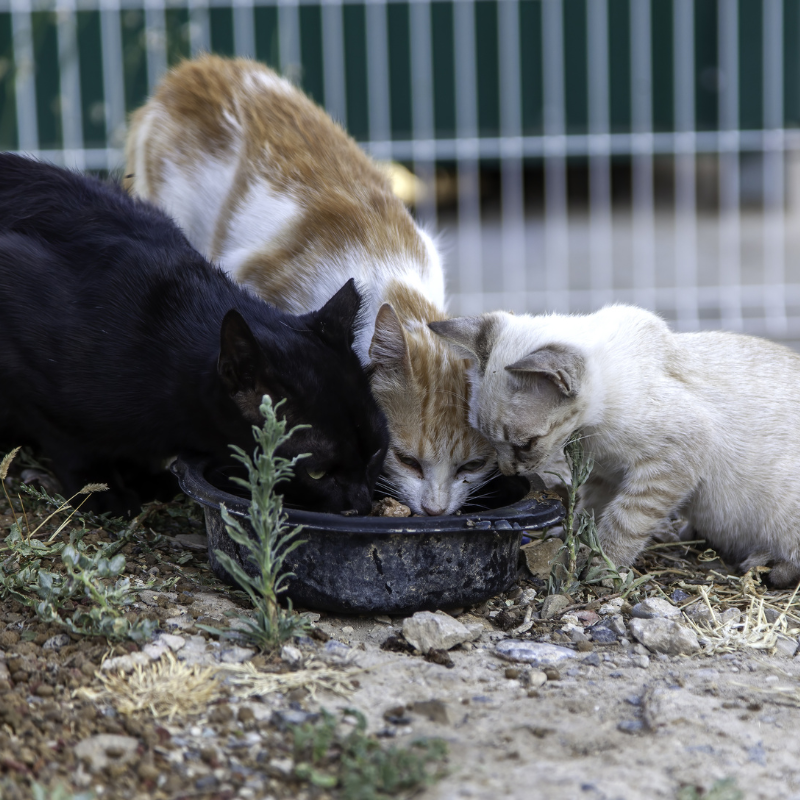
Jennifer Barnes, Trapper & Animal Welfare Advocate
September 29, 2020
Sarah Moore & Dr. Teri Kidd, Animal Protective League
October 6, 2020
Today’s guest post comes to us from Krista Beucler, Marketing & Communications Intern at Community Cats Podcast.
This week I spoke to Anna, Community Pet Resource Manager at Animal Friends Alliance (AFA), a guaranteed adoption shelter in Colorado, about programs that support pet retention or shelter intake prevention. If you’ve heard Stacy talk about the Community Cat Pyramid, you know that she advocates for supporting the owned pet population before tackling community cats with TNR or rescue and adoption. The types of programs Anna told me about support Stacy’s philosophy and assist AFA in helping every pet achieve the best outcome.
So, what are programs for pet retention?
Simply put, pet retention programs help to provide resources and support to pet owners, with the goal of keeping pets in homes. The programs at AFA are threefold. First is the Community Cat Program, which operates trap-neuter-return for cat colonies in the community. Not only does this help control the population of the feral colonies, but it also helps decrease problem behaviors like spraying, noise, and roaming, and helps keep cats healthy by providing vaccines and medical care. Cats from a healthy and fixed colony are less likely to end up in a shelter, whether from illness, injuries related to fighting, with kittens, or due to complaints from neighbors. This in turn frees up resources for the homeless animals who really need help.
The second program is the Kibble Supply Pet Food Pantry. Just like a human food bank, the Kibble Supply helps those facing hardships feed their furry companions. The philosophy here is that if the only barrier for someone to keeping their pet in their home is buying food, then the shelter wants to support them. The alternative might be that people have to surrender their pets, which brings more pets to the shelter. To participate in the Kibble program, clients must have their animals fixed—which brings us to the last program supporting pet retention at AFA.
The Prevent a Litter Plus (PAL+) program helps to provide subsidized-cost spay/neuter, vaccines, and microchips. Most pet owners want to be able to give their pet the best care possible, and AFA wants to help them do just that. For most people who use this program, this is the only time their pet will see a vet.
Why are these programs important?
The most important thing these programs do is reduce the number of homeless pets by preventing animals from coming into the shelter in the first place. If pets are able to stay in their homes, the shelter is able to free up kennel space and resources for other animals with greater need.
How has COVID-19 affected the need for these programs?
Anna says that the shelter has added a question to the PAL+ application about how COVID-19 has affected the client’s income. The majority of applicants have answered that their income has been affected by the pandemic, whether because they’ve lost their job, taken a pay cut, or had a decrease in hours worked. Anna has also noticed about a 10% increase in new clients using the Kibble Supply Pantry, as well as some clients returning to the program that haven’t needed to use it recently. In the US, many people who were just above the poverty line prior to the pandemic may have now dipped below that line as a result of COVID-19, which makes these programs more important than ever. Soon we are also likely to see a pandemic of evictions that are going to displace people and their beloved pets.
How can pet retention support social justice?
Many people adhere to the philosophy that “owning a pet is a privilege,” implying that if someone can’t afford food or medicine for their animal, they shouldn’t have one. Anna feels that whether you believe that or not, this way of thinking doesn’t address the root of the problem or the realities of people facing hardship. People will always have animals, and, particularly in areas with low-income housing where turnover rate is high, many residents take in abandoned or stray animals. The emotional benefits of the human-animal bond have been proven and no one should be barred from creating that bond, or lose that bond because they have to surrender a pet due to hardship. Think about how much you love your pet and the benefits of pet ownership. Just because someone is living in poverty does not diminish these benefits; in fact, it may even strengthen them.
What can pet owners do to support these programs at their local shelters?
Donations of money, food, or pet supplies—or your time—are always welcome at your local shelter and help support the important work they do. You can also adopt a pet, or encourage your friends to adopt instead of shop. If your local shelter doesn’t have any programs like the ones listed above, you can encourage your shelter to start one.
What resources are there for shelters trying to develop these programs?
Looking at the Humane Society of the United States’ Pets for Life program is a good place to start. Animal Sheltering has also put together some resources and toolkits related to the Pets for Life Program. Human Animal Support Services is a program from American Pets Alive! that collaborates with communities to reduce shelter intake. You can also contact Anna at Animal Friends Alliance if you have any questions.
 Originally from Colorado, Krista Beucler received a Bachelor of Arts in creative writing at the University of Mary Washington (UMW) in Virginia. She was the editor-in-chief for Issue 7.2 of the Rappahannock Review, the literary journal published by UMW. Krista’s creative work has been published in From Whispers to Roars literary magazine. She is spending COVID-19 at home with her cats.
Originally from Colorado, Krista Beucler received a Bachelor of Arts in creative writing at the University of Mary Washington (UMW) in Virginia. She was the editor-in-chief for Issue 7.2 of the Rappahannock Review, the literary journal published by UMW. Krista’s creative work has been published in From Whispers to Roars literary magazine. She is spending COVID-19 at home with her cats.




